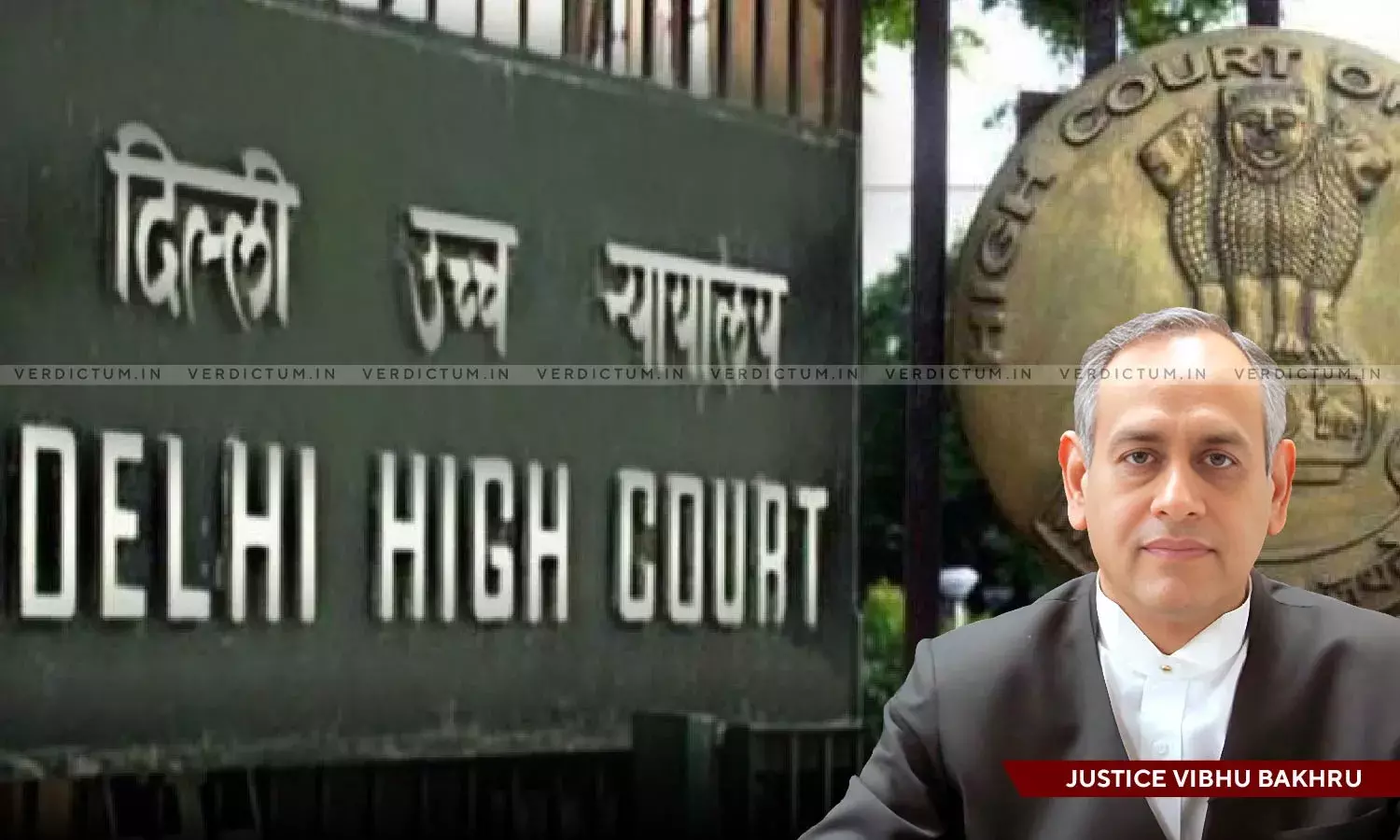Arbitration Clause Which Was Part Of Rent Agreement Will Continue To Operate If Parties Had Extended Said Agreement By Written Communication: Delhi HC

While setting aside the order passed by the Commercial Court, whereby the Appellant’s application under Section 8 of the Arbitration Act in a suit for recovery filed by the Respondent was rejected, the Delhi High Court held that since Respondent is seeking recovery of security deposit made in terms of the Rent Agreement, clearly therefore, the dispute whether the said security deposit can be withheld or forfeited by the Appellant is a matter that arises in connection with the Rent Agreement.
The Single Judge Bench of Justice Vibhu Bakhru observed that "In case of novation of an agreement, where a subsequent agreement replaces an earlier agreement, arbitration clause in the earlier agreement may not survive, if the agreement novated does not contain any such clause. However, these principles may have no application where the parties, by a written agreement or by an exchange of communications, which provide a record of the agreement, extend the agreement that contains an arbitration clause. In such circumstances, the clause relating to the agreement to refer the disputes to arbitration would continue to be operative. The arbitration agreement would cover the extended period if the communications bear out such an agreement."
Advocate Nishant Nigam appeared for the Petitioner, whereas Advocate Sushil Shukla appeared for the Respondent.
In a brief background of the case, the Appellant/defendant was the owner of a property/warehouse situated in Neemrana, Rajasthan (Demised Premises) who entered into an agreement with the Respondent for the purpose of leasing out the property, and in this regard, executed a rent agreement. The Agreement provided that the lease period for the Demised Premises would be for the period of one year, subject to further renewal on a yearly basis and the Respondent/plaintiff also agreed to deposit being three months’ rent as interest free refundable security. The Respondent continued to be in possession of the Demised Premises after the expiry of the period of one year and continued to pay rent as agreed. After vacating the Demised Premises, the Respondent called upon the Appellant to refund the security deposit who declined, alleging that the Demised Premises was damaged and repair of the flooring of the Demised Premises itself would cost twice the amount of the security deposit. The Respondent consequently, instituted a suit, seeking a decree for recovery of security deposit along with interest. Opposing the same, Appellant filed an application under Section 8 of the Arbitration Act praying that the parties be referred to arbitration.
The Commercial Court however, rejected the application and held that since the Rent Agreement had come to an end in 2018 and the parties chose not to enter into a fresh written agreement or renew the prior agreement, the Appellant could not rely on the arbitration clause of the expired Rent Agreement. Additionally, the Commercial Court also imposed costs of INR 10,000 on the Appellant, to be paid to the Respondent. Hence, present appeal.
It was the case of the Respondent that it had deposited the security amount in terms of the Rent Agreement and that the Appellant was obliged to refund the same upon vacation and handing over of the peaceful possession of the Demised Premises. The Respondent also disputed the allegation that it had caused any damage to the Demised Premises and claimed that the Demised Premises was not fit for occupation at the commencement of the rent period.
Referring to Clause 21 of the Rent Agreement, the Bench stated that the arbitration agreement between the parties was couched in wide terms and any dispute relating to the interpretation, scope, and effect of any of the terms and condition of the Rent Agreement or in any way ‘touching or concerning’ the Rent Agreement was required to be referred to arbitration.
The Bench observed that if the parties had, by written communications or by an agreement which was apparent from the written communications, extended the Rent Agreement, the arbitration clause which was a part of the Rent Agreement would continue to be operative.
However, in a case where an agreement comes to an end and the parties enter into a fresh agreement, which supersedes the earlier one, the Bench explained that the arbitration clause contained in the earlier agreement would not survive in respect of the disputes that arise in connection with a later agreement.
Therefore, the High Court observed that in case of novation of an agreement, where a subsequent agreement replaces an earlier agreement, arbitration clause in the earlier agreement may not survive, if the agreement novated does not contain any such clause.
Accordingly, the High Court referred the parties to arbitration.
Cause Title: Unique Decor (India) Private Limited v. Synchronised Supply Systems Limited [Neutral Citation: 2023: DHC: 3847-DB]
Click here to read/download Judgment

